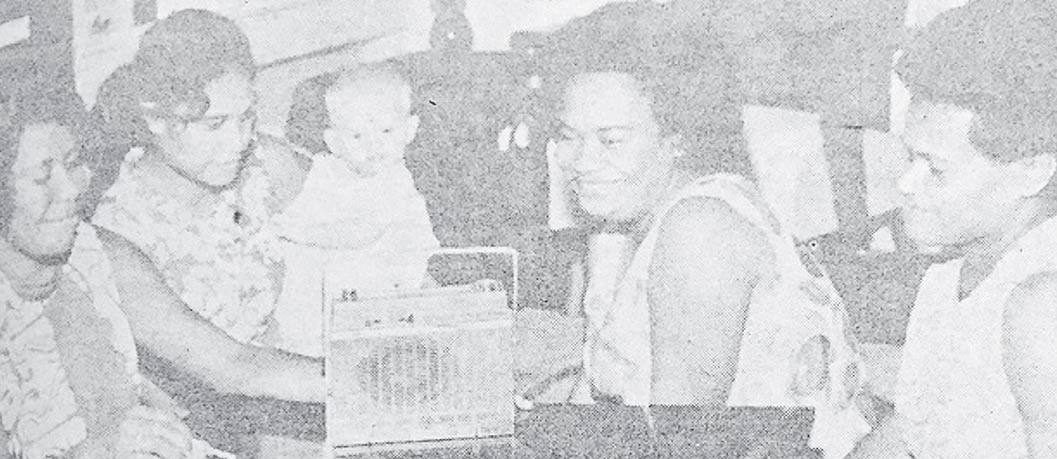Thousands of people in villages and towns around Fiji spent Monday, July 21, 1969 glued to their radio sets listening to broadcasts of the historical moon exploration.
It was the broadcast of the famous Apollo 11 mission where the first human landed on the moon.
According to the National Aeronautics and Space Administration (NASA), Apollo 11 launched from Cape Kennedy on July 16, 1969, carrying Commander Armstrong, Command Module Pilot Michael Collins and Lunar Module Pilot Edwin “Buzz” Aldrin into an initial Earth-orbit of 114 by 116 miles.
An estimated 650 million people watched Armstrong’s televised image and heard his voice describe the event.
In Suva, the ripple of excitement, coupled with a feeling of awe, was felt throughout the city as, at 2:57pm, Neil Armstrong’s left foot came into contact with the moon’s surface.
Typists, clerks, government officials, storekeepers, shop assistants and customers gathered around the nearest radio to listen of the mission.
The Fiji Times on Tuesday July 22, 1969 published an article on the moon exploration, describing how Fijians were excited about the successful Apollo 11 mission.
Many of those who had to keep on the move had portable transistors held against their ears as they went about the streets of Suva.
Even the conference of the Methodist Church in Fiji was interrupted while about 300 delegates listened over a loudspeaker system to the astronauts first landing on the moon surface.
This newspaper reported one large office which employed about 60 people had a radio on each floor.
While the first few steps were taken, everyone clustered around the radios but later returned to their desks to listen while they worked.
In a department store, the report described staff members and customers listened to radios owned by the store or brought in by staff members and shoppers wandered in, listened for a while and eventually tore themselves away.
According to the report, when the first steps were taken on the moon, a great shout from the listeners resounded through the shop.
Employers had taken an understanding attitude and allowed their staff members to turn on the broadcast.
After all, a number of them had their own ears stuck next to a radio.
At Lautoka, many people arrived late for work.
They were willing to risk incurring the wrath of their employers rather than miss the early morning broadcasts.
Lautoka Cathay Hotel manager Fred Carter tried unsuccessfully to tune his television set in to the mission.
Mr Carter had recently been picking up clear images because of freak atmospheric conditions but on Monday July 21, all his television set managed to produce was the sound of voices from an unidentified television channel, giving a commentary on the landing.
According to the National Geographic, the pair stayed on the moon’s surface for 21 hours and 36 minutes before rendezvousing with Mr Collins and heading back to Earth.



